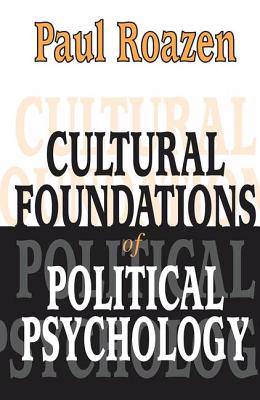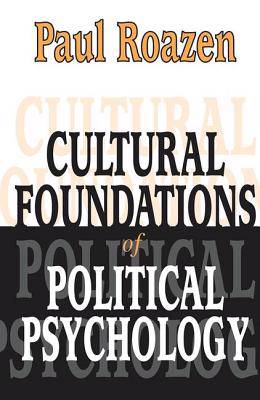
- Retrait gratuit dans votre magasin Club
- 7.000.000 titres dans notre catalogue
- Payer en toute sécurité
- Toujours un magasin près de chez vous
- Retrait gratuit dans votre magasin Club
- 7.000.0000 titres dans notre catalogue
- Payer en toute sécurité
- Toujours un magasin près de chez vous
Description
Over the centuries all of the great philosophers made psychology central to understanding social life. Indeed, the ancient Greeks thought it impossible to conceive of political life without insight into the human soul. Yet insuffficient professional legitimization attaches to the central importance of modern depth psychology in understanding politics. Cultural Foundations of Political Psychology explores the linkages between psychology and politics, focusing on how rival conceptions of the good life and unspoken moral purposes in the social sciences have led to sectarian intolerance.
Roazen has always approached the history of psychoanalysis with the conviction that ethical issues are implicit in every clinical encounter. Thus, his opening chapter on Erich Fromm's exclusion from the International Psychoanalytic Association touches on a host of political matters, including collaboration as opposed to resistance to Nazi tyranny. Roazen also brings a public/private perspective to such well-known episodes as the Hiss/Chambers case, the circumstances of Virginia Woolf's madness and suicide, and the matter of CIA funding of the monthly Encounter. He deals with the reaction to psychoanalysis on the part of three major philosophers--Althusser, Wittgenstein, and Buber--and looks at the link between psychology and politics in the work of such political theorists as Machiavelli, Rousseau, Burke, Tocqueville, Berlin, and Arendt. A chapter grappling with Vietnam and the Cold War illustrates how political psychology should be concerned with questions of an ethical or "ought" character.
In examining the social and psychological bases for political theorizing, Roazen shows how both psychology and politics must change and redefine their methodologies as a result of their interaction. Roazen concludes with a chapter on how political psychology must deal with issues posed by changing conceptions of femininity. This volume is a pioneering exploration of the intersection of psychology and politics.
Spécifications
Parties prenantes
- Auteur(s) :
- Editeur:
Contenu
- Nombre de pages :
- 312
- Langue:
- Anglais
Caractéristiques
- EAN:
- 9780765801821
- Date de parution :
- 31-05-03
- Format:
- Livre relié
- Format numérique:
- Genaaid
- Dimensions :
- 160 mm x 235 mm
- Poids :
- 603 g

Les avis
Nous publions uniquement les avis qui respectent les conditions requises. Consultez nos conditions pour les avis.






